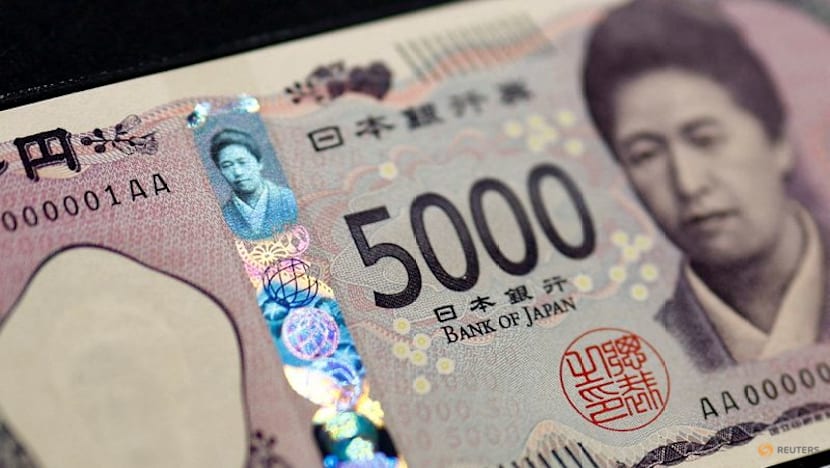Yen drops to 7-month low on fiscal concerns, euro dips

Holograms are seen on the new Japanese 5,000 yen banknote displayed at a currency museum of the Bank of Japan in Tokyo, Japan July 3, 2024. REUTERS/Issei Kato/Pool
NEW YORK :Concerns about the fiscal outlook in Japan sent the yen to a more than seven month low against the U.S. dollar on Tuesday and political uncertainty in France dented the euro, with traders also focused on any signs of when the U.S. federal government will reopen.
The yen has tumbled since Sanae Takaichi’s leadership victory in Japan on Saturday.
Takaichi, who is expected to become Japan's next prime minister, has pledged to boost the Japanese economy with aggressive spending and has been critical of the Bank of Japan's interest rate hikes.
"There's going to be a period of time where (investors) try and figure out how exactly her policies will affect the currency," said Lou Brien, strategist at DRW Trading in Chicago.
Money market traders are now pricing in a 26 per cent chance that the BoJ will raise interest rates at its next policy meeting on October 30, down from around 60 per cent before Takaichi's leadership victory.
Against the Japanese yen, the dollar was last up 1 per cent to 151.86 and reached 151.93, the highest since February 19.
Still, some analysts said that the Bank of Japan is likely to continue hiking interest rates as it battles relatively high inflation.
"For this month, the BoJ will perhaps stay on hold just to be on the safe side but in December they'll get a bit more data and I think they'll deliver another hike," said Mohamad Al-Saraf, forex research associate at Danske Bank.
"Inflation is still too high, rates are still too low, and the case for another BoJ hike this year is still alive."
Japan's finance minister said authorities were watching out for excessive moves in currency markets.
EURO ON THE BACK FOOT
The euro remained on a fragile footing following the resignation of France's prime minister on Monday, adding to pressure on President Emmanuel Macron and putting fiscal consolidation in doubt.
France is now likely to miss a deadline to present its 2026 budget bill, meaning lawmakers will need to pass emergency stopgap legislation to authorize spending from January 1 until a full budget is approved.
The single currency was last down 0.43 per cent at $1.1659.
The dollar index rose 0.46 per cent to 98.57.
The U.S. currency has weakened this year on concerns about a deteriorating fiscal outlook, expectations of slowing growth and fears that President Donald Trump's tariff policies will scare investors away from U.S. assets.
That move has paused since the end of June with the greenback largely consolidating against most major peers, said DRW's Brien.
Brien expects dollar weakness to resume, however, on a weakening labor market.
"The labor market here is weaker and will continue to be weaker than is generally appreciated. And not only will you get a likely very dovish Fed chair to replace (Jerome) Powell next year, but in between now and then I think Fed policy will probably be a little bit easier than is currently being priced in."
So far markets have largely shrugged off the government shutdown, however the longer it continues the more likely it will also hurt the greenback "because you'll get a weaker economic performance," Brien said.
President Donald Trump said on Tuesday that his administration plans to eliminate a number of government programs as a result of the ongoing shutdown, adding that he would provide details of job cuts within the next four or five days.
The shutdown delayed last Friday's closely watched monthly jobs report for September and is set to postpone other key releases until the government reopens.
A New York Federal Reserve survey released on Tuesday found that Americans grew more worried about the future of the job market in September, while at the same time bumping up projections for the future path of near-term inflation.
Fed Governor Stephen Miran on Tuesday said that he is more sanguine about others about the outlook for inflation and said the U.S. bond market’s current relative calm supports a swift push to lower interest rates.
In cryptocurrencies, bitcoin fell 3.51 per cent to $120,8601 after reaching a record $126,223.18 on Monday.













